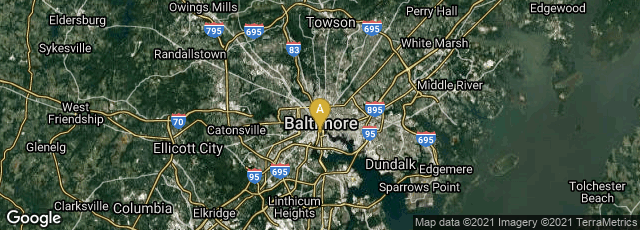

A: Baltimore, Maryland, United States
In 1814 Baltimore music store owner and music publisher Thomas Carr issued American lawyer, author and poet Francis Scott Key's The Star Spangled Banner. A Pariotic [sic] Song, printed from two engraved plates.
Of the eleven copies of the first edition known in 2010, ten were in institutions; only one remained in private hands.
"Francis Scott Key's famous patriotic verses were inspired by a shipboard vigil on the night of September 13-14, 1814, when a British naval flotilla bombarded Fort McHenry for hours, prefatory to a planned full-scale assault. Key, a young lawyer, and a colleague had gone on board a British ship under a flag of truce to secure the release of an American physician, Dr. William Beanes, held as a prisoner. To ensure that no military information on the impending attack could be passed to the American defenders, Key too was detained. He spent the night on the deck of the flag-of-truce sloop, which gave him a sweeping view of the dramatic scene. He watched anxiously as British naval cannon-fire and incendiary bombs and rockets rained onto the American fort. During the shelling, the very large stars and stripes flag flying from the fort's ramparts was clearly visible, giving heartening evidence that the fort's defenses had weathered the storm of shot and shell. But when the bombardment unexpectedly ceased, the American flag was obscured. Key was heart-sick. Had the fort been forced to surrender? But at dawn, when the smoke of the shelling lifted, the flag was again visible. Key's patriotic emotions were powerfully stirred by the welcome sight. His first draft of the anthem was written on shipboard, on the back of a letter, then a final version, containing four 8-line stanzas, was completed in the next few days upon Key's return to Baltimore.
"His rousing song perfectly mirrored Americans' heightened patriotic fervor in the wake of the destruction of Washington and the bombardment of Fort McHenry. Broadside and newspaper printings under the title 'The Defence of Fort McHenry,' swiftly circulated, [the first of which appeared on September 17 and is known in only two surviving copies.] The verses' runaway popularity was given strong impetus when Key's lyrics were set to the tune of a well-known drinking tune 'The Anacreontic Song,' attributed to the English composer, John Stafford Smith (1740-1846). . . .
"Capitalizing on the great popularity for the song, the enterprising Baltimore music publisher Thomas Carr (1780-1849) quickly engraved and printed words and music together. Signs are that it was a rushed job: the name of the poet, Francis Scott Key, was omitted, and the heading proclaimed the song to be "A Pariotic Song." The sheet-music edition of the song was available for purchase at Carr's shop before 18 November. In an amended issue from the same plates, Carr corrected the misspelling: parts of the copperplate were rubbed out and re-engraved to read 'A Celebrated Patriotic Song.' No doubt the sheet-music--despite its spelling errors--enjoyed a brisk sale at the time and for years afterwards. Today, though, only 11 copies of the first edition are recorded; all but the present, newly discovered copy are in public institutions" (http://www.christies.com/LotFinder/lot_details.aspx?intObjectID=5382313, accessed 11-24-2010).
On December 3, 2010 the last copy remaining in private hands sold for $506,500 including the buyer's premium at Christie's in New York.
As recently as 1931 Congress named The Star-Spangled Banner the national anthem.